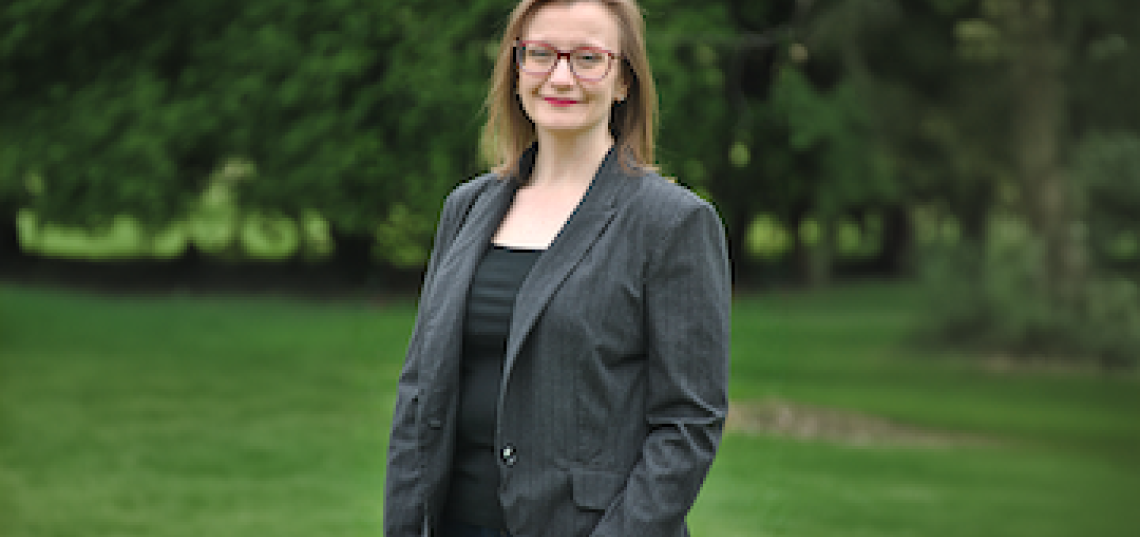
Christina Steffy MLIS’11 spent 13 years working in libraries after completing her degree at Rutgers SC&I. She started as a solo librarian at a small nursing school in Pottsville, Pa., then moved to the Pennsylvania College of Health Sciences as the manager of library support services. While here, she earned her second master’s degree and continued to write articles and books. (You can access Steffy’s publications through her LinkedIn page.) In 2021, Steffy moved into the library director role at Alvernia University in Reading, Pa., and transitioned in January 2024 to her role as director of institutional assessment, accreditation, and compliance. Steffy’s career moves reveal the many paths that a Master of Information degree affords its graduates.
“My library science education has been incredibly helpful in assessment and accreditation work because it helped me develop a keen eye for details, the ability to effectively organize information to be easily retrieved, an understanding of how people interact with information, and the ability to think critically about and find patterns in information. And I will always be a librarian at heart.”
SC&I: What led you to choose the MLIS (now called the Master of Information) program at SC&I?
CS: Having grown up near to Rutgers, I knew the school had an excellent reputation. I have a close friend who went to Rutgers as an undergrad, and he has always spoken highly of the university. When I was researching schools for my master's degree and found out Rutgers had a library science degree, I was thrilled because it was close enough that I could attend in a hybrid fashion and get some time on campus so I could make personal connections but I also didn't have to uproot my life to move (which I couldn't do at the time). I also liked the strong curriculum that wasn't overly focused on the information technology side of things but also wasn't overly focused on just reference and instruction. It was a good mix that didn't overemphasize either side of the library and IT spectrum but showed how they both worked together. And it was affordable, and it was a top 10 school. I really couldn't ask for anything better. It was perfect.
SC&I: What did you find most formative and informative about the master’s program at SC&I?
CS: Not having to specialize in any specific track was what helped me be successful as a solo librarian. Had I only specialized in reference or instruction tracks, I wouldn't have gained the cataloging and metadata and other skills that I learned from a broad array of courses. I took most of my classes with Professor Emerita Kay Cassell who was so knowledgeable and professional and kind. She set high standards, and she was always there to guide her students and mentor them in any way she could. Her reference course helped me learn about some basic resources and ways to find education to help me learn what I needed to learn when I became a librarian at the school of nursing. Having the option to do a for-credit internship was so valuable because I could take what I learned and apply it before jumping into the workforce. I was able to get the combination of classroom and practical experience that set me up for success.
Professor Marie Radford has been an amazing role model. I first met her before I was accepted as a student at Rutgers. She spoke at one of the annual workshops of the Lehigh Valley Chapter of the Pennsylvania Library Association. She was happy to meet me in person and invited me to join her for lunch. She was so enthusiastic and encouraging, and she happily answered any questions I had about Rutgers and the profession. Although I never had a class with her, she was always there to encourage me and all of the students. She has a commanding presence that makes you want to be like her and excel in the profession while at the same time being so kind, caring, and welcoming. I'm so glad we've been able to stay connected all this time.
What advice do you have for current and/or prospective SC&I students?
CS: It's no secret that libraries are changing, and the core values of our profession are being attacked. Even when we aren't facing political turmoil that is hindering our ability to do our jobs, we're always advocating for resources to meet the basic needs of our patrons. But while we're advocating for the needs of today, we must always have an eye toward the future and be watching trends that could fundamentally change the nature of our work. We need to stay on top of things so we can manage the impact these forces have on our profession. This is also a profession that requires constant learning. It can be emotionally demanding, but also very rewarding. As with any profession, you need to know how to advocate for your own physical and mental health and take care of yourself. Also, you have transferable skills. Even if you enter the degree as I did with the intention of being a librarian, you don't have to limit yourself to only being a librarian. Understanding how to critically evaluate information, how to teach people how to use and evaluate information, how to organize information, and how people interact with information are invaluable skills that are needed across nearly all fields. Be open to possibilities and where life takes you. I never thought I would do anything other than work in a library after my MLIS, but so many doors opened to me because of the skillset I have acquired.
Photo credit: Christina Steffy
